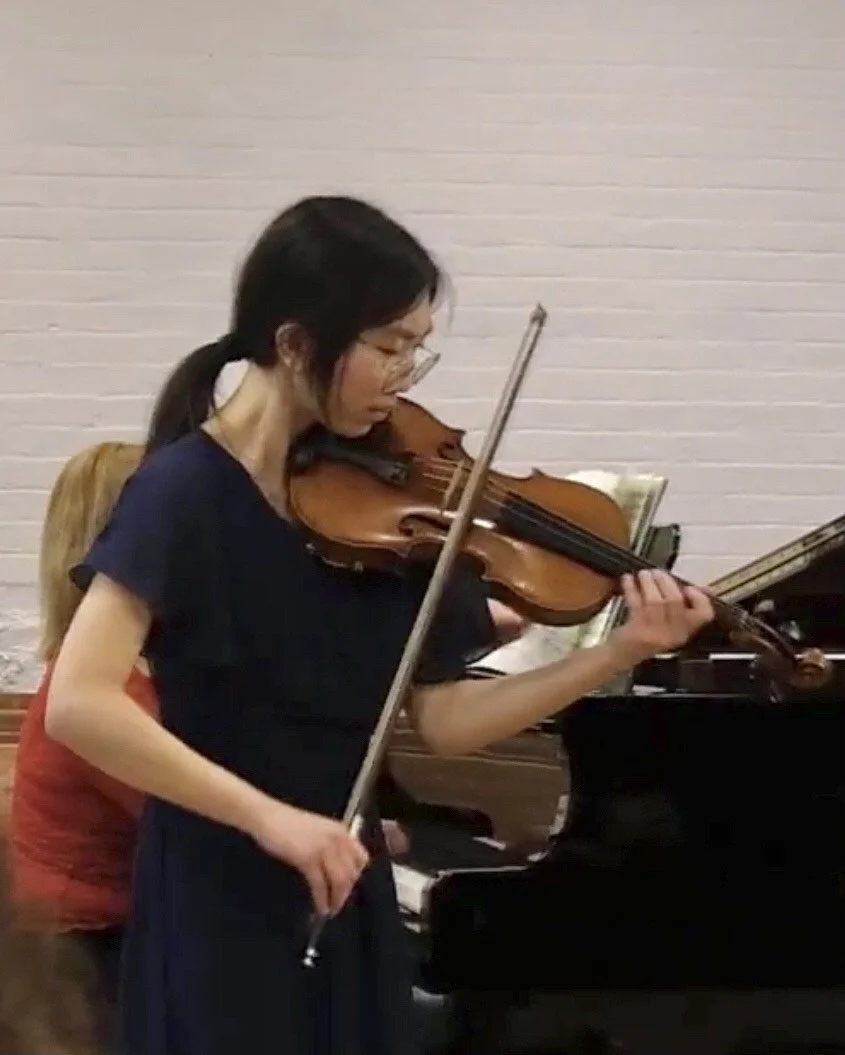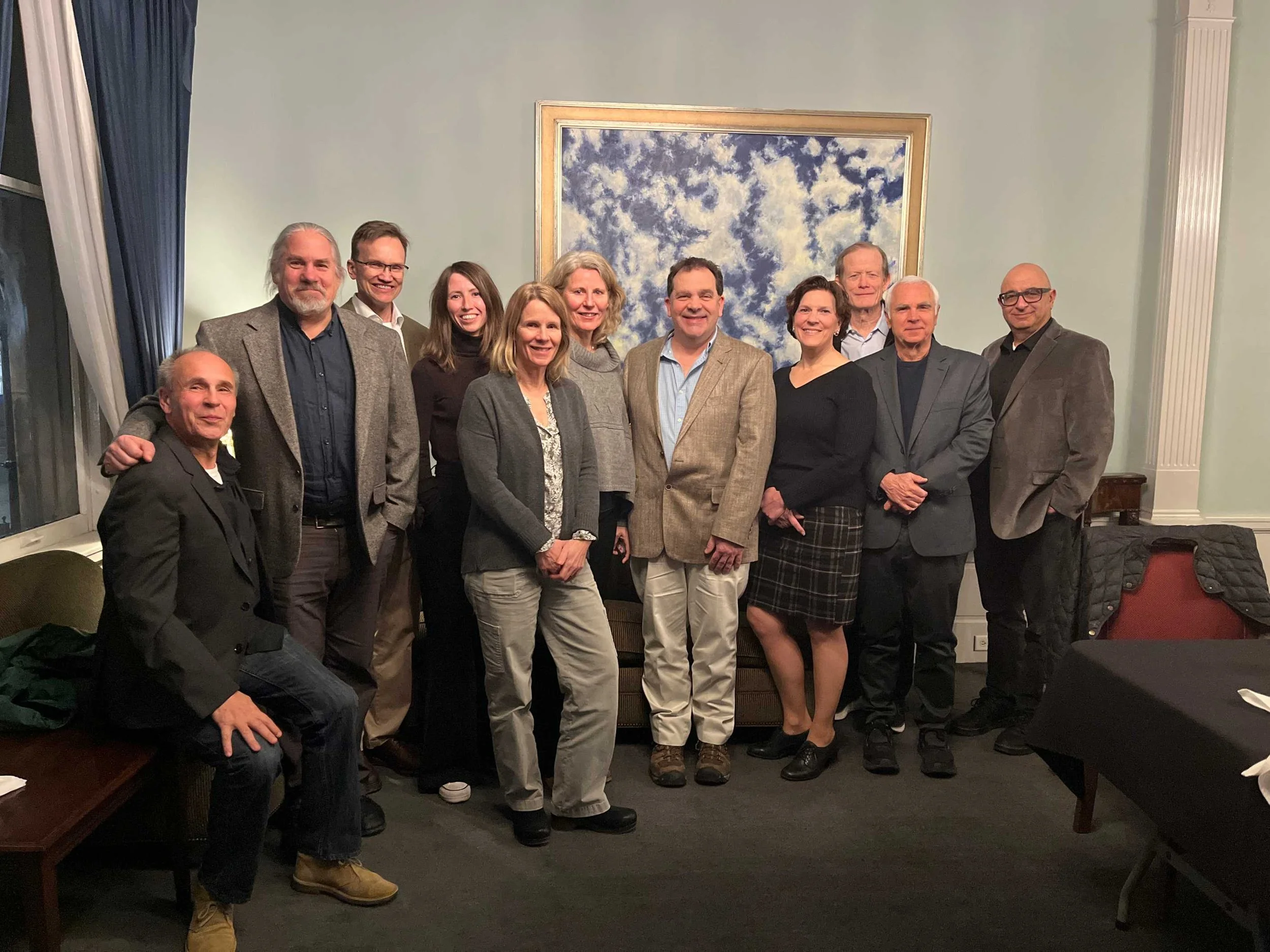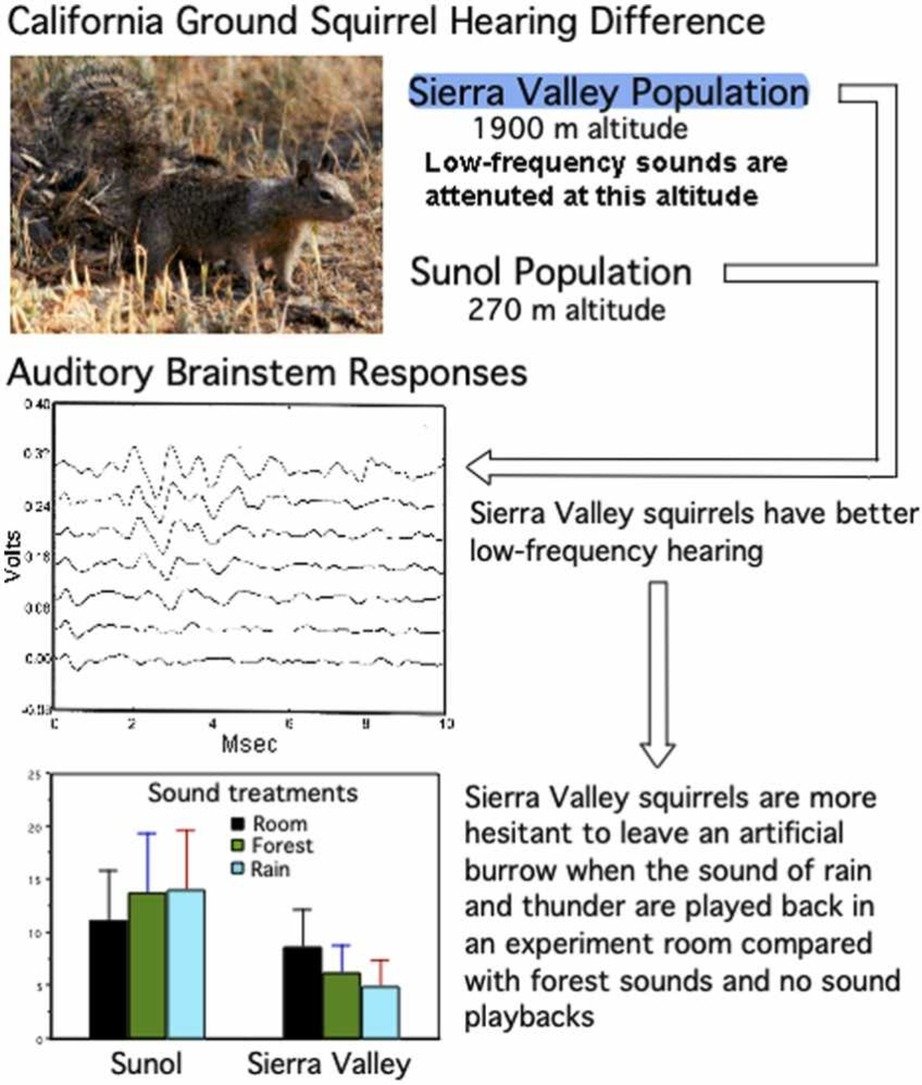(Desplácese hacia abajo para ver la traducción al español).
By Kathi Mestayer
Credit: @brett_jordan/Unsplash
A few months ago, lying in bed half-asleep, I heard the words: “Wake up, little Susie!” I got up and Googled it. Hearing the Everly Brothers sing it on YouTube, I had a strong memory burst. I knew that song! From way-way back!
A few weeks later, I was listening to the NPR “Short Wave” podcast in which scientists were being interviewed about why music memories are so “sticky” in our brains. That was all it took to get me started reading, researching and learning about music and memory.
Music Memories: Lots of Pieces
The first question I had was: How do we save our music memories? Kiminobu Sugaya, Ph.D., the head of neuroscience at the University of Central Florida, says in the “Short Wave” podcast: “Music memories are saved in so many different categories. They can fit into, and link up with, a much larger number than most other memory types.” (Emphasis mine, and I have also lightly edited the quotes from other sources throughout.)
According to a 2013 paper in the Proceedings of the National Academy of Sciences, a few of the categories that we use to save, and link up, music memories, include:
Muscle memory can be created if we are singing, playing an instrument, dancing, or just tapping our feet. Credit: @tadasmikuckis/Unsplash
Muscle memory: if we are singing, playing an instrument, dancing, or just tapping our feet
Word/language memory: lyrics, rhyme
Visual memory: sheet music, piano keys, what was seen with the music
Melody, pitch, and structure: components of “templates,” based on our prior musical exposure, that we use to process music.
Finally, the emotions that accompany music:
“Emotional music memory, especially if it is linked with pleasure, is very strong, and can be easier to retrieve than other kinds of memory,” Sugaya points out to me, in an email. “Even in normal aging, other parts of the brain get smaller, but the amygdala, which supports emotional memories, stays involved.”
He adds, “Because a variety of different parts of our brains process music, those memories are stored away in many different places. This is because music engages multiple regions of the brain simultaneously, including areas involved in auditory processing, emotional processing, and memory formation, among others. By linking these different brain regions, music can help to create rich and complex musical memories that are stored in multiple areas of the brain.”
Memory Creation and Storage
Think of the brain activity that represents an event in our life as little balloons floating in different areas of the brain. Credit: @anspchee/Unsplash
Andrew Budson, Ph.D., a professor of neurology at Boston University, and chief of cognitive and behavioral neurology for the Center for Translational Cognitive Neuroscience at Veterans Affairs Boston Healthcare System, explains to the Washington Post, “The different aspects of a memory—the sights, sounds, smells, emotions, and thoughts—are represented by a pattern of neural activity in different parts of the cortex, the outer surface of the brain, where the seeing, hearing, smelling, emoting, and thinking is taking place.”
Budson offers a useful metaphor for how our brains form and save music memories. Think of the brain activity that represents an event in our life as little balloons floating in different areas of the brain. “When a new memory is formed, it is as if the hippocampus is tying together the strings of the balloons, just like if you held the strings of helium balloons in your hand,” he says. “If the hippocampus was destroyed, the balloons would separate and fly away and the memory would be gone.”
For a memory to become long-lasting, it must be consolidated while we are sleeping, Budson explains. Think of the different balloons becoming linked directly to each other. After consolidation, he says, “the different balloons become linked directly to each other through heavy cords and because of this the hippocampus is no longer needed for the memory to remain intact. This is why people with Alzheimer’s disease can recall stuff from their childhood but not remember what they had for lunch or who they saw yesterday.”
Music Memory and Alzheimer’s Disease
Credit: @schluditsch/Unsplash
Alzheimer’s disease attacks the hippocampus first and foremost, affecting “episodic memory,” which requires conscious work to recall, according to Budson. It’s the first to go, when Alzheimer’s, or dementia, hits. For remembering the rhythm of the music, however, we can use a different process, called “procedural memory” (informally known as muscle memory), which is our ability to remember skills.
Some of the procedural components of musical memory can survive the hippocampus damage that impairs many other memory types. Individuals with Alzheimer’s can also retrieve memories that have been consolidated in the past—that’s why they can remember songs from their youth so well.
One example cited in the Washington Post article is the singer Tony Bennett, who was diagnosed with Alzheimer’s in 2017 and, according to his wife, didn’t know he had the disease. In 2021, he performed at Radio City Music Hall with Lady Gaga. With no notes or cue cards, he sang an hour-long set from memory.
Saving and Retrieving Music Memories
Once the brain activity “balloons” are linked during memory formation, signals go back and forth between them whenever the memory is retrieved. When, for example, a musician plays a piece again, those connections get stronger, and are preserved longer. In fact, just listening to music repeatedly helps to embed the memories. “People are much more likely to seek out, and re-listen to, music than other media,” Budson points out when I interviewed him.
Sleep also plays an important role. “During sleep, music memories get more coordinated, and linked to each other. In fact, it generally happens while we’re dreaming,” according to Budson.
Even with well-encoded memories, we often need a hint, or a cue, to find and retrieve them. In his book “This Is Your Brain on Music,” McGill University neuroscientist Daniel Levitin, Ph.D., writes, “The barrier to being able to recall everything we might want to is not that it wasn’t ‘stored’ in memory, then; rather, the problem is finding the right cue to access the memory and properly configure our neural circuits.”
“The better we encode something, the better we can retrieve it later,” according to Sugaya. “In fact, as we age, our older memories tend to remain stronger.”
“Deeply encoded music can also unlock ‘flashbulb’ memories. We remember more vivid details about events in the past when we are exposed to music,” Budson tells the Washington Post. He adds that research has shown that effect is more common with music than with familiar faces or other stimuli.
So it seems that a group of memory “balloons” had been floating around in my brain for decades, waiting to be retrieved. Finally, they got a cue, and sent a “wake up” song lyric to my auditory cortex. Maybe this is how we remember music from 50-plus years ago, but still can’t find our car keys. But it’s also all the more reason to replay our favorite songs (not too loudly), and sing along. Our brains will thank us.
Hearing Health magazine staff writer Kathi Mestayer serves on advisory boards for the Virginia Department for the Deaf and Hard of Hearing and the Greater Richmond, Virginia, chapter of the Hearing Loss Association of America. To learn more about memory and aging, she recommends the book “Why We Forget and How to Remember Better,” by Andrew Budson and Elizabeth Kensinger, pubished by Oxford University Press in 2023. It includes science, insights, and advice on managing our memories as we age.
Manteniéndose en Sintonía: Música y Recuerdos
Por Kathi Mestayer
Hace unos meses, acostada en la cama medio dormida, escuché las palabras: “Wake up, Little Susie!” ("¡Despierta, Pequeña Susie!"). Me levanté y lo busqué en Google. Al escuchar a los Everly Brothers cantarla en YouTube, tuve un fuerte estallido de memoria. ¡Conocía esa canción! ¡Desde muy atrás!
Unas semanas más tarde, estaba escuchando el podcast "Short Wave" de NPR (National Public Radio) en el que se entrevistaba a científicos sobre por qué los recuerdos musicales está tan "pegados" en nuestros cerebros. Eso fue todo lo que necesité para que empezara a leer, investigar y aprender sobre música y memoria.
Recuerdos Musicales: Muchas Piezas
La primera pregunta que tuve fue: ¿Cómo guardamos nuestros recuerdos musicales? Kiminobu Sugaya, Ph.D., jefe de neurociencia de la Universidad de Florida Central, dice en el podcast "Short Wave": “Los recuerdos musicales se guardan en muchas categorías diferentes. Pueden encajar y vincularse con un número mucho mayor que la mayoría de los otros tipos de memoria". (El énfasis es mío, y también he editado ligeramente las citas de otras fuentes a lo largo de todo el texto.)
Según un artículo de 2013 en Proceedings of the National Academy of Sciences, algunas de las categorías que usamos para guardar y vincular recuerdos musicales incluyen:
Memoria muscular: si estamos cantando, tocando un instrumento, bailando o simplemente golpeando con los pies
Memoria de palabras/idiomas: letras, rimas
Memoria visual: partituras, teclas del piano, lo que se vio con la música
Melodía, tono y estructura: componentes de "plantillas", basadas en nuestra exposición musical previa, que utilizamos para procesar la música.
Por último, las emociones que acompañan a la música:
"La memoria musical emocional, especialmente si está relacionada con el placer, es muy fuerte y puede ser más fácil de recuperar que otros tipos de memoria", me señala Sugaya, en un correo electrónico. "Incluso en el envejecimiento normal, otras partes del cerebro se vuelven más pequeñas, pero la amígdala, que apoya los recuerdos emocionales, permanece involucrada".
Y añade: "Debido a que una variedad de partes diferentes de nuestros cerebros procesa la música, esos recuerdos se almacenan en muchos lugares distintos. Esto se debe a que la música involucra múltiples regiones del cerebro simultáneamente, incluidas las áreas implicadas en el procesamiento auditivo, el procesamiento emocional y la formación de la memoria, entre otros. Al vincular estas diferentes regiones del cerebro, la música puede ayudar a crear recuerdos musicales ricos y complejos que se almacenan en múltiples áreas del cerebro.”
Creación y Almacenamiento de Memoria
Andrew Budson, Ph.D., profesor de neurología en la Universidad de Boston y jefe de neurología cognitiva y conductual del Centro de Neurociencia Cognitiva Traslacional en el Sistema de Salud de Asuntos de Veteranos de Boston, explica al Washington Post: "Los diferentes aspectos de un recuerdo-las imágenes, los sonidos, los olores, las emociones y los pensamientos-, están representados por un patrón de actividad neuronal, en diferentes partes de la corteza, la superficie externa del cerebro, donde tiene lugar la vista, el oído, el olfato, la emoción y el pensamiento".
Budson ofrece una metáfora útil de cómo nuestros cerebros forman y guardan recuerdos musicales. Piense en la actividad cerebral que representa un evento en nuestra vida como pequeños globos flotando en diferentes áreas del cerebro. "Cuando se forma un nuevo recuerdo, es como si el hipocampo estuviera atando las cuerdas de los globos, como si Ud. sostuviera las cuerdas de los globos de helio en su mano," dice. "Si se destruyera el hipocampo, los globos se separarían y volarían, y el recuerdo desaparecería.”
Para que un recuerdo sea duradero, debe consolidarse mientras dormimos, explica Budson. Piense en los diferentes globos que se vinculan directamente entre sí. Después de la consolidación, dice, "los diferentes globos se unen directamente entre sí a través de cuerdas pesadas y, debido a esto, el hipocampo ya no es necesario para que la memoria permanezca intacta. Esta es la razón por la que las personas con enfermedad de Alzheimer pueden recordar cosas de su infancia, pero no recordar lo que almorzaron o a quién vieron ayer".
Memoria Musical y Enfermedad de Alzheimer
La enfermedad de Alzheimer ataca al hipocampo en primer lugar, afectando a la "memoria episódica", que requiere un trabajo consciente para recordar, según Budson. Es el primero en desaparecer cuando llega el Alzheimer o la demencia. Para recordar el ritmo de la música, sin embargo, podemos usar un proceso diferente, llamado "memoria procedimental" (informalmente conocida como memoria muscular), que es nuestra capacidad de recordar habilidades.
Algunos de los componentes procedimentales de la memoria musical pueden sobrevivir al daño del hipocampo, que afecta a muchos otros tipos de memoria. Las personas con Alzheimer también pueden recuperar recuerdos que se han consolidado en el pasado, por eso pueden recordar tan bien canciones de su juventud.
Un ejemplo citado en el artículo del Washington Post es el del cantante Tony Bennett, quien fue diagnosticado con Alzheimer en 2017 y, según su esposa, no sabía que tenía la enfermedad. En el 2021 se presentó en el Radio City Music Hall con Lady Gaga. Sin notas ni tarjetas de referencia, cantó de memoria un set de una hora de duración.
Guardar y Recuperar Recuerdos de Música
Una vez que los "globos" de actividad cerebral se vinculan durante la formación de la memoria, las señales van y vienen entre ellas cada vez que se recupera el recuerdo. Cuando, por ejemplo, un músico vuelve a tocar una pieza, esas conexiones se hacen más fuertes y se conservan durante más tiempo. En efecto, el simple hecho de escuchar música repetidamente ayuda a incrustar los recuerdos. "Es mucho más probable que la gente busque y vuelva a escuchar música, antes que otro medio de comunicación", señaló Budson cuando lo entrevisté.
El sueño también juega un papel importante. "Durante el sueño, los recuerdos musicales se coordinan mejor y se vinculan entre sí. De hecho, generalmente sucede mientras estamos soñando", según Budson.
Incluso con recuerdos bien codificados, a menudo necesitamos una pista, o una señal, para encontrarlos y recuperarlos. En su libro "This Is Your Brain on Music" (“Tu Cerebro y la Música”), el neurocientífico de la Universidad McGill, Daniel Levitin, Ph.D., escribe: "La barrera para poder recordar todo lo que querríamos, no es entonces que no estuviera 'almacenado' en la memoria; más bien, el problema es encontrar la pista adecuada para acceder a ella y configurar correctamente nuestros circuitos neuronales".
"Cuanto mejor codificamos algo, mejor podemos recuperarlo más tarde", según Sugaya. "Efectivamente, a medida que envejecemos, nuestros recuerdos más antiguos tienden a permanecer más fuertes".
"La música profundamente codificada también puede desbloquear recuerdos 'flashbulb'. Recordamos detalles más vívidos sobre eventos en el pasado cuando estamos expuestos a la música", dijo Budson al Washington Post. Agrega que la investigación ha demostrado que el efecto es más común con la música, que con rostros familiares u otros estímulos.
Así que, parece que un grupo de "globos" de memoria habían estado flotando en mi cerebro durante décadas, esperando ser recuperados. Finalmente, recibieron una señal y enviaron una letra de canción de "wake up" (“despierta”) a mi corteza auditiva. Tal vez así es como recordamos la música de hace más de 50 años, pero todavía no podemos encontrar las llaves de nuestro auto. Pero también es una razón más para volver a reproducir nuestras canciones favoritas (no demasiado alto) y cantar con ellas. Nuestro cerebro nos lo agradecerá.
Kathi Mestayer, redactora de la revista Hearing Health, forma parte de los consejos asesores del Departamento de Virginia para Sordos e Hipoacúsicos y del capítulo de Great Richmond, Virginia, de la Asociación Estadounidense de Pérdida Auditiva. Para aprender más sobre la memoria y el envejecimiento, recomienda el libro "Por qué olvidamos y cómo recordar mejor," de Andrew Budson y Elizabeth Kensinger, publicado por Oxford University Press en el 2023. Incluye ciencia, ideas y consejos sobre cómo manejar nuestros recuerdos a medida que envejecemos.
Traducción al español realizada por Julio Flores-Alberca, junio 2025. Sepa más aquí.











The team’s analysis uncovered a surprising diversity of supporting cells, the “non-sensory cellular guardians” that surround and protect the sensory hair cells and may facilitate their regeneration